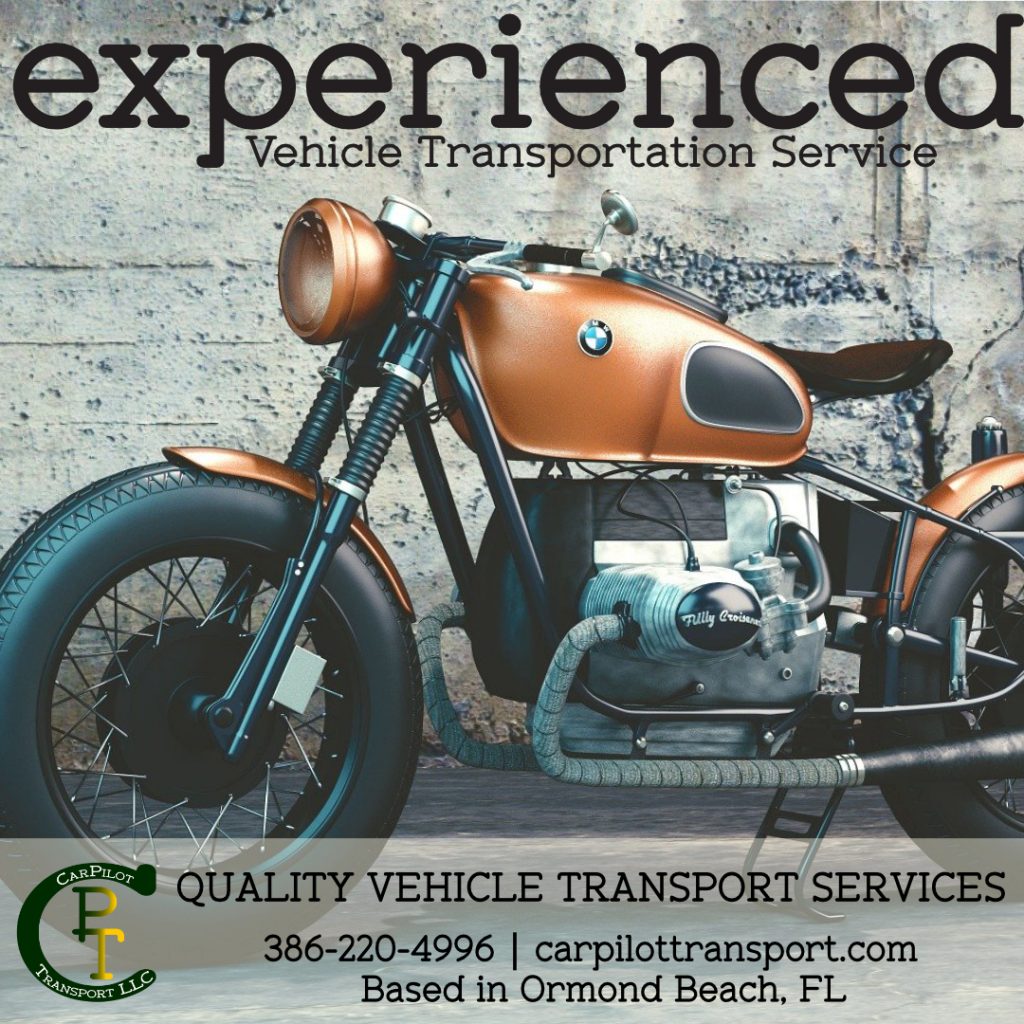Experience Excellence
We understand that your vehicle is probably one of your prized investments or if you are an auto dealer – soon to be a prized automobile for your next buyer. That is where we come in to help you. Our vehicle hauling knowledge is second to none. We pride ourselves in getting your car, truck, motorcycle, or antique vehicle from point a to point b quickly and safely as well.
Our Charleston South Carolina Vehicle Hauling services include but are not limited to:
+ Dealership Vehicles
+ Personally Owned Vehicles
+ Research and Development Vehicles
+ Cold & Warm Weather Test Shipments
+ International Shipments, Mexico, Canada and abroad
+ Commercial/Photo/TV shoots
+ New Vehicle Distribution
+ National Tours
+ Media Events
+ Auto Shows
+ Hot Rod Events and Tours

Listen To What Our Customers Are Saying About Us!
Our family owned used car dealership has used CarPilot Transport for moving our customers cars for several years, & we have always had excellent service!!

Edward W., Auto Dealer
Learn about why CarPilot Transport is loved by its clients.
We know how important it is to be on time and damage-free. Our enclosed carrier fleet is designed to provide security and protection.
Amazing Charleston South Carolina Vehicle Hauling
CarPilot Transport is the premier specialty car carrier and vehicle solutions provider delivering 35,000 vehicles in the United States and Canada every year. Our specialty is the shipping of dealership vehicles from one dealership location to another location.
CarPilot Transport delivers all types of vehicles and is well qualified to care for vehicles that require special handling and have critical transport schedules. CarPilot Transport offers enclosed, open and flatbed services.
Whether your vehicles are moving across town or across the country, CarPilot Transport is the carrier whose sole purpose is to ensure that your important vehicles are delivered “On time and damage free”.
Facts about Charleston
Charleston South Carolina’s Top Historical and Famous Landmarks and Sites. Charleston, South Carolina attractions and famous landmarks include the Ravenel Bridge, lighthouses, Fort Sumter, Fort Moultrie, the Angel Oak Tree, fountains, and antebellum mansions.
For a long time, Charleston’s had a reputation as a specimen of the antebellum South trapped in amber. The city has transformed into one of the top travel destinations in the world in the past several years. Now it is drawing in visitors with its horse-drawn carriages, cobblestone streets, award-winning restaurants, beautiful sandy beaches.
Nearby the city market, you will see signs for carriage tours. Take time to book a tour, it is considered to be the best way to see Charleston and to learn about its rich history. The tour that I took was through Palmetto Carriage Tours and we strongly recommend it.
Charleston, the South Carolina port city founded in 1670, is defined by its cobblestone streets, horse-drawn carriages, and pastel antebellum houses, particularly in the elegant French Quarter and Battery districts. The Battery promenade and Waterfront Park both overlook Charleston Harbor, while Fort Sumter, a federal stronghold where the first shots of the Civil War rang out, lies across the water.
The City’s History
Charleston is the largest city in the U.S. state of South Carolina, the county seat of Charleston County, and the principal city in the Charleston-North Charleston–Summerville Metropolitan Statistical Area. The city lies just south of the geographical midpoint of South Carolina’s coastline on Charleston Harbor, an inlet of the Atlantic Ocean formed by the confluence of the Ashley, Cooper, and Wando rivers.
Charleston had an estimated population of 137,566 as of the latest U.S. Census estimate in 2019. The estimated population of the Charleston metropolitan area, comprising Berkeley, Charleston, and Dorchester counties, was 802,122 residents as of July 1, 2019, the third-largest in the state and the 74th-largest metropolitan statistical area in the United States.
Charleston was founded in 1670 as Charles Town, honoring King Charles II, at Albemarle Point on the west bank of the Ashley River (now Charles Towne Landing) but relocated in 1680 to its present site, which became the fifth-largest city in North America within ten years. It remained unincorporated throughout the colonial period; its government was handled directly by a colonial legislature and a governor sent by Parliament.
Election districts were organized according to Anglican parishes, and some social services were managed by Anglican wardens and vestries. Charleston adopted its present spelling with its incorporation as a city in 1783. Population growth in the interior of South Carolina influenced the removal of the state government to Columbia in 1788, but Charleston remained among the ten largest cities in the United States through the 1840 census.[10]
Charleston’s significance in American history is tied to its role as a major slave-trading port. Charleston slave traders like Joseph Wragg were the first to break through the monopoly of the Royal African Company and pioneered the large-scale slave trade of the 18th century; almost one-half of slaves imported to America arrived in Charleston. In 2018, the city formally apologized for its role in the American Slave trade after CNN noted that slavery “riddles the history” of Charleston.